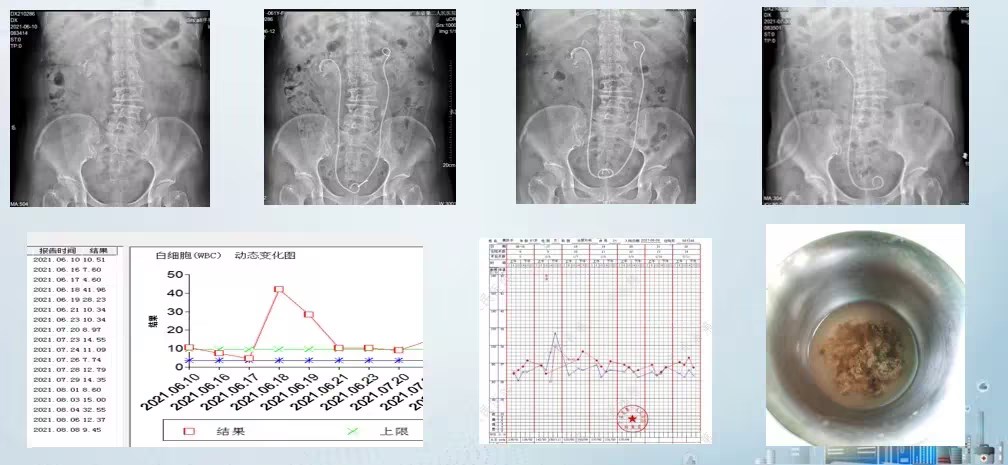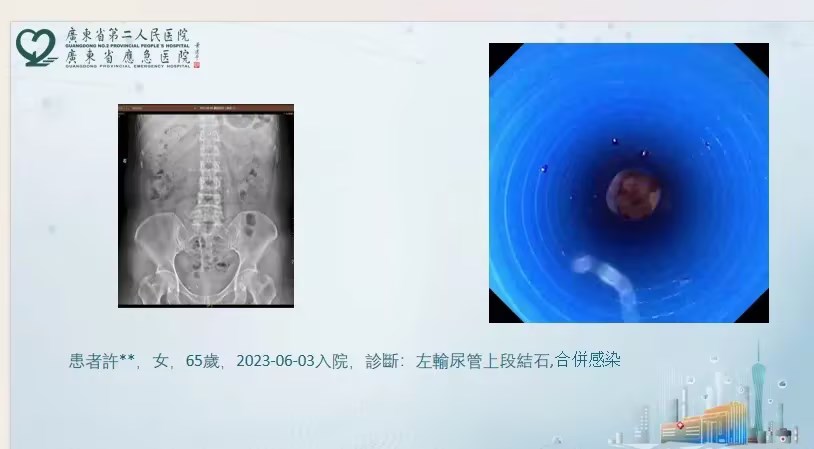From August 16th to 18th, the 2024 TUA 24th 1st Members Meeting and the 46th Academic Conference were held at the Chang Gung International Conference Center, Linkou Chang Gung Memorial Hospital. The event warmly invited several scholars and experts to deliver academic lectures and engage in in-depth discussions and analyses on the latest developments in urology and clinical diagnosis and treatment.
Professor Qiu Xiaofu from Guangdong Second People's Hospital, at the invitation of Dr. Feng Sizhong, Chairman of the Taiwan Urological Association, delivered a speech at this conference. The theme was "RIRS: From 'Just do it' to 'Anything is possible'," extending to the application of the flexible negative pressure sheath in RIRS (Retrograde Intrarenal Surgery). Professor Qiu has over 20 years of clinical experience in urology and is proficient in the diagnosis and treatment of various diseases of the urinary and male reproductive systems. He has deep expertise in the field of urological stone and tumor surgeries.Challenges of RIRS as a Mainstream Stone Treatment Method?RIRS is the main method for treating upper urinary tract stones and is considered the first-line option for treating upper urinary tract stones ≤ 2 cm. However, real-world data reports the stone-free rate (SFR) of RIRS to be between 45.6%–96.7%.Studies have shown that for patients with urinary tract infections, even with preoperative antibiotic prophylaxis for RIRS, 2%–28% of patients still develop postoperative fever, 4.4%–8.1% develop SIRS (Systemic Inflammatory Response Syndrome), and 3%–5% progress to septic shock or multiple organ dysfunction, increasing the risk of death.>653c7bbf-8b9d-41b9-a6f2-decccbd82728.jpgAddressing the two major challenges of RIRS: Improving the stone-free rate; and 2) Controlling intrarenal pressure to prevent urosepsis.
Professor Qiu has over 20 years of clinical experience in urology and is proficient in the diagnosis and treatment of various diseases of the urinary and male reproductive systems. He has deep expertise in the field of urological stone and tumor surgeries.Challenges of RIRS as a Mainstream Stone Treatment Method?RIRS is the main method for treating upper urinary tract stones and is considered the first-line option for treating upper urinary tract stones ≤ 2 cm. However, real-world data reports the stone-free rate (SFR) of RIRS to be between 45.6%–96.7%.Studies have shown that for patients with urinary tract infections, even with preoperative antibiotic prophylaxis for RIRS, 2%–28% of patients still develop postoperative fever, 4.4%–8.1% develop SIRS (Systemic Inflammatory Response Syndrome), and 3%–5% progress to septic shock or multiple organ dysfunction, increasing the risk of death.>653c7bbf-8b9d-41b9-a6f2-decccbd82728.jpgAddressing the two major challenges of RIRS: Improving the stone-free rate; and 2) Controlling intrarenal pressure to prevent urosepsis. Professor Qiu demonstrated through practical cases that the ZSR flexible negative pressure access sheath in ureteroscopic lithotripsy for upper urinary tract stones ≤ 30 mm significantly outperformed traditional ureteral sheaths. It offers a higher stone-free rate, lower postoperative fever rate, and better quality-of-life improvement. The flexible negative pressure sheath has the potential to replace traditional ureteroscopic sheaths and become the preferred tool in ureteroscopic lithotripsyZSR looks forward to engaging in deeper exchanges with more experts and scholars to jointly promote scientific progress and clinical applications in urology. "Innovation for Humanity, Technology for the Future" – ZSR is committed to long-term growth and continuous innovation in the field of minimally invasive intervention, aiming to become a leading force in the development of this domain.
Professor Qiu demonstrated through practical cases that the ZSR flexible negative pressure access sheath in ureteroscopic lithotripsy for upper urinary tract stones ≤ 30 mm significantly outperformed traditional ureteral sheaths. It offers a higher stone-free rate, lower postoperative fever rate, and better quality-of-life improvement. The flexible negative pressure sheath has the potential to replace traditional ureteroscopic sheaths and become the preferred tool in ureteroscopic lithotripsyZSR looks forward to engaging in deeper exchanges with more experts and scholars to jointly promote scientific progress and clinical applications in urology. "Innovation for Humanity, Technology for the Future" – ZSR is committed to long-term growth and continuous innovation in the field of minimally invasive intervention, aiming to become a leading force in the development of this domain.

